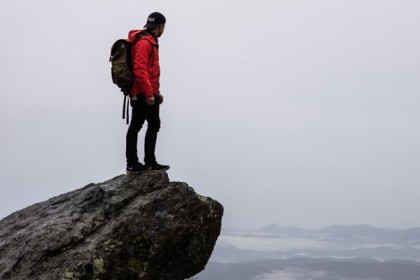Table of Contents
Describe An Outdoor Activity You Did

Cue Card
You should say:
- What the activity was
- When and where you did it
- Who you did it with
- And explain why you enjoyed it
Sample Answer 1
Certainly. Recently, I engaged in a hiking activity, which is a popular outdoor pursuit in my region. The invitation to participate in this activity came from a close friend who is an avid hiker and often explores various trails in the nearby mountains.
While I didn’t specifically ask for help in the overall planning of the activity, my friend did provide guidance on the choice of trail based on my hiking experience and fitness level. As it was a more challenging trail than what i had previously attempted, my friend gave me some useful tips on pacing myself and staying hydrated during the hike.
The significant change that occurred during the activity was the unexpected weather shift. What started as a clear and sunny day suddenly transformed into overcast conditions with occasional rain showers. This change added an element of unpredictability and excitement to the hike, as we had to adapt our plans and make adjustments to ensure safety on the trail.
Despite the unexpected weather, the experience turned out to be memorable. The rain brought out vibrant colors in the surrounding landscape, and the cooler temperature made the hike more enjoyable. It highlighted the importance of flexibility and adaptability in outdoor activities, reminding me that sometimes unexpected changes can lead to even more rewarding experiences in the great outdoors.
Sample Answer 2
I’m going to talk about my passion for mountain hiking, which is a big part of my life. It was around two years ago that I started. At that time, I was feeling bored with the same old routine, so I decided to try something new. One day, when I was browsing Instagram, I saw some incredible photos of mountain trails, and 1 was immediately captivated. Then, I did some research, got the necessary equipment, and started planning my first hiking adventure.
I venture into the mountains quite often, about every couple of weeks.
Besides, I normally choose different trails in various parks, which keeps the experience both exciting and challenging. I usually pack only essential items and I always wear my most comfortable hiking boots while on these treks.
Every time I get to the top of a mountain, I feel like “Yeah, I did it!” What’s more, when everyday life gets too much, being in nature always makes me feel refreshed. I love hiking so much that every time someone asks me for hobby suggestions, I always recommend giving hiking a try. It’s not just about the physical exercise; it’s about connecting with nature, breathing the fresh air, and enjoying the breathtaking views. It’s an unforgettable experience, each and every time.
Part 3
1. Is having outdoor activities important to people?
Absolutely, engaging in outdoor activities is crucial, especially for individuals who spend a significant amount of time in urban environments. Being outdoors offers a necessary break from the monotony and pressures of work, providing a refreshing change of scenery and pace. It allows for physical exercise, which is essential for maintaining physical health, but the benefits extend far beyond just the physical.
Being in nature can greatly enhance mental. health, reducing stress, anxiety, and depression. Outdoor activities also offer opportunities for socializing, learning new skills, and simply enjoying the beauty of the natural world. They foster a deeper connection with the environment, encouraging conservation and sustainability efforts. For city dwellers, in particular, making time for outdoor activities can significantly improve quality of life and overall well-being.
2. Do people go outdoors more or less now than in the past?
Overall, it seems people spend less time outdoors now compared to the past, largely due to the rise of digital technology and changes in lifestyle that promote more indoor activities. However, there’s been a growing awareness in recent years about the importance of outdoor activities for health and well-being. As a result, more individuals are making a conscious effort to incorporate outdoor time into their routines. Concerns over physical health, mental wellness, and the desire for a break from screen time are driving this change. This shift is particularly noticeable among those who recognize the stark contrast between their daily urban life and the rejuvenation found in nature. While modern life may have initially led to a decline in outdoor activities, the trend is slowly reversing as people seek healthier, more balanced lifestyles.
3. What can people do outdoors besides exercising?
Outdoor activities are not limited to just exercising; there’s a whole range of things people can do to enjoy the outdoors. Meditation in a peaceful, natural setting can be incredibly rejuvenating, offering a moment of tranquility away from the hustle and bustle. Simply breathing in fresh air and soaking in the sunlight can boost one’s mood and vitamin D levels. Many also find joy in less active pursuits, like picnicking, bird watching, or even just sitting and appreciating the beauty of nature. Engaging. in outdoor photography or painting can provide a creative outlet, while gardening connects one with the earth and offers a sense of accomplishment.These activities provide an opportunity, to slow down, reflect, and enjoy the simple pleasures of life, highlighting that the great outdoors has something for everyone.
4. When do people usually go outdoors to get close to nature?
People typically seek to connect with nature during weekends and holidays when they have free time away from the demands ef work or school. These periods provide a valuable opportunity for individuals and families to escape the hustle and bustle of urban life and immerse themselves in natural surroundings. The desire to enjoy the beauty and tranquility of nature often leads people to plan outings to parks, forests, mountains, or beaches. Weekends and vacation times offer the necessary break to rejuvenate and engage in outdoor activities such as hiking, camping, or simply relaxing in a scenic spot. This time off allows people to recharge and appreciate the serene and restorative aspects of the natural world.
5. What can people do to get close to nature?
Getting close to nature can involve a variety of activities that engage the senses and allow individuals to appreciate the natural world. One can enjoy the simple pleasure of flower viewing, which is not only visually pleasing but also offers a chance to witness the changing seasons. Breathing in fresh air in a natural setting, away from the pollution of urban areas, can be incredibly refreshing and healthful. Engaging all senses, people can listen to the sounds of birds, feel the texture of leaves, and smell the earth after rain, providing a holistic natural experience.
Activities like walking through a forest, sitting by a lake, or even gardening at home can facilitate a deeper connection with nature. These activities are accessible ways for people to step away from their daily routines and immerse themselves in the calmness and beauty of natural environments.
6. Do people like doing outdoor activities in the winter time?
Personal preferences for outdoor activities in winter vary widely. Speaking for myself, I’m not particularly keen on engaging in outdoor activities during the colder months, as the chilly air can be uncomfortable, especially when it’s piercingly cold. The prospect of staying warm indoors often seems more appealing than braving the cold for outdoor pursuits. However, this isn’t the case for everyone. Some people thrive in winter conditions, enjoying activities like skiing, snowboarding, or ice skating. Winter can offer unique outdoor experiences and landscapes that aren’t available during other seasons. Ultimately, whether individuals like being outdoors in winter depends on their tolerance for cold and their interest in winter-specific activities.
Some IELTS Speaking part 2 cue-cards you may like :
- IELTS Speaking Part 1 From January to April 2024
- IELTS Speaking Part 2 From January to April 2024
- (2024) Describe An Occasion When you Heard Someone Complaining About Something In a Restaurant/ Store Or Other Business Places
- (2024) Describe a Useful Skill That You Learned As a Teenager
- (2024) Describe a Time When You Picked Up An Item That Someone Else Lost
- (2024) Describe a Time You Had To Finish Something Quickly
- (2024) Describe a Trip You Were Looking Forward To But Was Delayed
Credits
Image : Photo by Ashley Knedler on Unsplash


